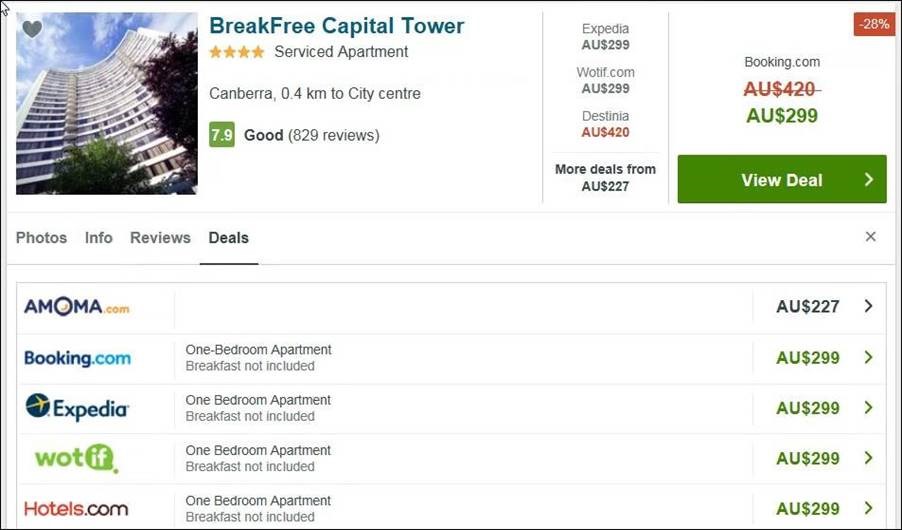THE FEDERAL COURT OF AUSTRALIA HAS FOUND TRIVAGO BREACHED AUSTRALIAN CONSUMER LAW BY MAKING MISLEADING REPRESENTATIONS ABOUT HOTEL ROOM RATES ON ITS WEBSITE AND IN ITS TV ADS.
The court ruled that from at least December 2016, Trivago misled consumers by representing its website would quickly and easily help users identify the cheapest rates available for a given hotel.
According to the court’s findings, Trivago used an algorithm that placed significant weight on which online hotel booking site paid the OTA the highest cost-per-click fee in determining its website rankings and often did not highlight the cheapest rates for consumers.
The court also found Trivago’s hotel room rate comparisons that used strike-through prices or text in different colours gave consumers a false impression of savings because they often compared an offer for a standard room with an offer for a luxury room at the same hotel.
Furthermore, Trivago misled consumers to believe that its website provided an impartial, objective and transparent price comparison for hotel room rates until at least 2 July 2018.

Australian Competition & Consumer Commission (ACCC) chair Rod Sims said the watchdog brought the case to court back in August 2018 because it considered Trivago’s conduct as “particularly egregious”.
“Many consumers may have been tricked by these price displays into thinking they were getting great discounts,” he said.
“In fact, Trivago wasn’t comparing apples with apples when it came to room type for these room rate comparisons.
“This decision sends a strong message to comparison websites and search engines that if ranking or ordering of results is based or influenced by advertising, they should be upfront and clear with consumers about this so that consumers are not misled.”
Trivago had already admitted to some of the ACCC’s claims in December, which carry a fine of up to $1.1 million per breach.
The ACCC also produced memos in court that showed Trivago invited advertisers to pay more to “block” rival offers, while the OTA hit back by claiming the “best” deal isn’t always the cheapest.
A court hearing on relief, including penalties, will be held at a later date.
Travel Weekly has contacted Trivago for comment.
Article courtesy of: Travel Weekly, (2020, Jan. 21) FEDERAL COURT FINDS TRIVAGO MISLED CONSUMERS ABOUT HOTEL ROOM RATES





